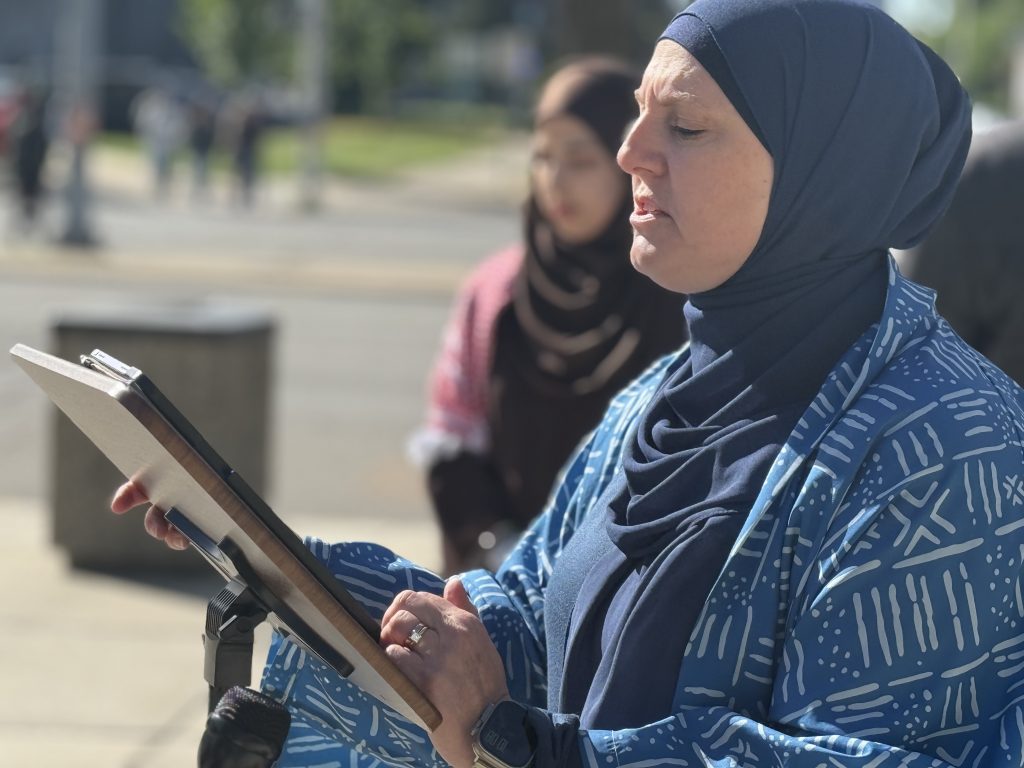The Metro: Is pro-Palestine speech protected on university campuses?
Michigan universities are facing criticism over their treatment of students participating in pro-Palestine protests.

Amy Doukoure with the Michigan chapter of the Council on American-Islamic Relations speaks to a handful of students on Wayne State University campus. CAIR-MI accused the university of being hostile to free speech over treatment of pro-Palestine protesters. August 25, 2025.
Are college campuses spaces for free speech and knowledge acquisition? Or, are they repressing student speech and violating their values?
These are the pressing questions on the minds of many faculty, administrators and students as they returned to campus last week.
That’s because a number of groups think universities in our state are failing — both by not protecting students of color nor the free speech of students. Last week, the Michigan Chapter of the Council on American-Islamic Relations held a press conference on Wayne State’s campus, accusing the university of being hostile to Muslim and Arab American students who express pro-Palestine views.
Wayne State University told The Metro it “remains deeply committed to supporting freedom of speech, expression and worship for all students, faculty and staff.”
Also last week, Congresswoman Rashida Tlaib criticized the University of Michigan, accusing the university of administrative repression of free speech of pro-Palestinian activists.
So, what are the rights and rules of free speech on college campuses? What should those rules be? And what are universities doing right when it comes to protecting free speech and students’ physical safety?
Zach Greenberg, Faculty Legal Defense and Student Association Counsel for the Foundation for Individual Rights and Expression (FIRE) joined The Metro to discuss.
Subscribe to The Metro on Apple Podcasts, Spotify, NPR.org or wherever you get your podcasts.
Listen to The Metro weekdays from 10 a.m. to noon ET on 101.9 FM and streaming on demand.
Trusted, accurate, up-to-date.
WDET strives to make our journalism accessible to everyone. As a public media institution, we maintain our journalistic integrity through independent support from readers like you. If you value WDET as your source of news, music and conversation, please make a gift today.
